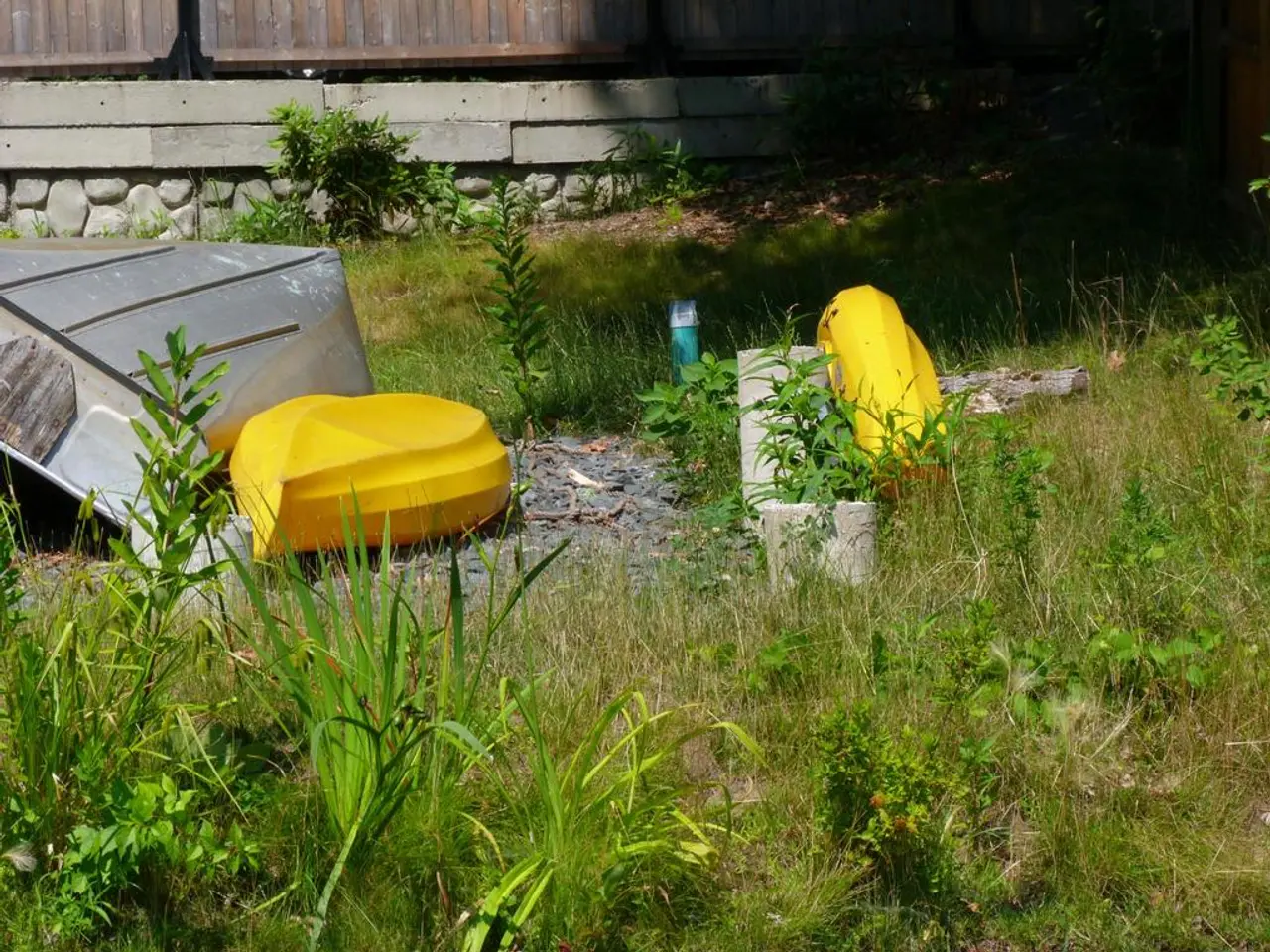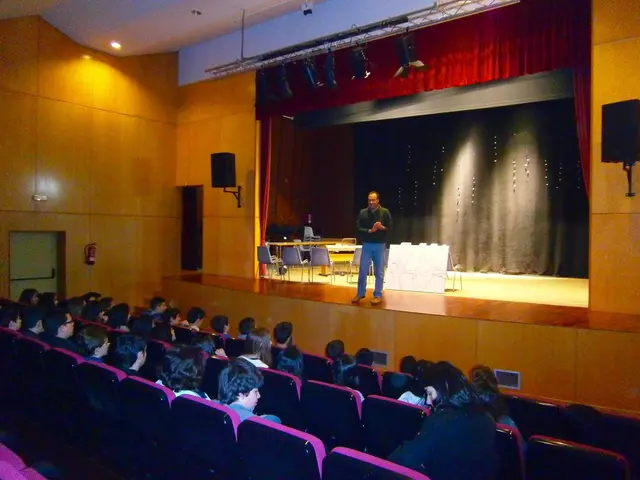A Realm Intent on Achieving Recognition as a Nation, Yet Lacking Official Status
In July 2025, the Bougival Accord was signed, marking a significant milestone in the future of New Caledonia. The territory is set to transform into a "State of New Caledonia" within the French Republic, offering increased autonomy and a dual nationality arrangement for its residents [1][3][5]. This new status aims to strike a balance between French sovereignty and greater self-governance, creating a unique institutional framework recognised constitutionally by France and potentially internationally.
However, the agreement has been met with controversy, as it reflects a colonial dynamic in which the indigenous Kanak people's political aspirations remain legally subordinate to French authority. Contentious issues include electoral restrictions, such as a minimum 10-year residency requirement for voting eligibility, and the extension of voting rights to long-term non-indigenous residents [2][3]. These measures have contributed to unrest, as Kanak leaders feel they dilute the ability to assert political power through democratic means.
The new New Caledonian nationality, intended to be dual (French and New Caledonian), raises questions from the perspective of international law, as it may not contain an element of voluntariness on the part of the individual acquiring it [6]. The Bougival Accord also secures French and European control over New Caledonia's nickel reserves, essential for producing batteries and stainless steel [1][2][3][5].
The "State of New Caledonia" established by the Accord will be a sui generis state, firmly inscribed in and integrated into the French Constitution [9]. While it allows for greater local governance, ultimate sovereignty remains with France, limiting the Kanak population's capacity to unilaterally achieve independence [2]. The Accord postpones essential decisions, effectively stalling the process towards Kanak independence [10].
The 2026 referendum will be crucial in determining whether this new political framework receives local democratic endorsement [1][3][5]. The referendum will allow New Caledonians to ratify the new status, which grants them expanded, though still constrained, democratic and political avenues to pursue their aspirations [1][3][5]. The new "State of New Caledonia" may adopt a "Fundamental Law" that allows for modifications to the state's identitarian symbols and the adoption of a charter of values inspired by the current Caledonian ethos [11].
Despite the controversy, the Bougival Accord does contain provisions for the institution of a special committee to study the feasibility of transferring substantial competences to the Congress of New Caledonia [8]. The new "State of New Caledonia" may be recognised by the international community, but this is generally understood to refer to sovereign and independent states, not non-independent territories [12].
The most recent census, conducted in 2019, shows that the Kanak account for 41% of the population, while the majority are French and European settlers (Caldoche), Polynesians, and Asians [7]. The demonstrations in 2021 were a result of the indigenous population (Kanak) fighting for independence [13]. The curfew was officially lifted in December 2024, marking the end of the unrest [4].
In summary, the current status post-Bougival Accord establishes New Caledonia as an autonomous state within France rather than an independent nation. This arrangement provides the Kanak people with expanded, though still constrained, democratic and political avenues to pursue their aspirations, but full sovereignty is deferred and embedded within French constitutional structures. The 2026 referendum will be key in determining whether this new political framework receives local democratic endorsement.
- The migration of political power in New Caledonia, as outlined in the Bougival Accord, remains a topic of much debate.
- The education-and-self-development of the indigenous Kanak people continues to be a significant concern.
- Personal-growth opportunities for the Kanak population are limited by the Agreement, causing frustration.
- Mindfulness and peaceful dialogue are imperative in finding a resolution to the ongoing conflict.
- The Bougival Accord's impact on war-and-conflicts within the territory is a pressing issue.
- Productivity and economic growth in New Caledonia may be affected as a result of the political instability.
- Career-development prospects for Kanak youth are diminished due to the current political climate.
- Policy-and-legislation revisions are essential to address the contentious issues raised by the Bougival Accord.
- The controversial car-accidents regulation in the Accord is one such issue causing outrage.
- The role of politics in New Caledonia's future is under scrutiny as a result of the controversy surrounding the Accord.
- Online-education platforms can provide valuable resources for Kanak individuals seeking to learn about their rights and advocate for change.
- Job-search websites are flooded with resumes from disillusioned Kanak individuals looking for new opportunities.
- General-news outlets cover the political unrest in New Caledonia extensively.
- Crime-and-justice issues, including protests and riots, have surged in the territory due to the Accord.
- Accidents related to political protests and civil unrest continue to plague the region.
- Fires, ranging from arson to accidental, have increased as a result of the unrest.
- Learning about the Bougival Accord and its implications for future generations is crucial for lifelong-learning.
- Skills-training programs are being developed to equip Kanak individuals with the tools they need to navigate the political landscape.
- Sports, such as football, basketball, and soccer, provide a welcome distraction from the ongoing conflict.
- Champions-league matches in various sports are being played amid concerns for player safety.
- NFL, NBA, WNBA, MLB, NHL, and golf tournaments face scheduling challenges due to the unrest in New Caledonia.
- Sports-betting companies struggle with predicting outcomes in light of the political unrest.
- European leagues, including the Premier League, La Liga, and Serie A, express solidarity with the people of New Caledonia.
- Weather forecasting plays a crucial role in predicting the potential for protests and maintaining public safety.
- The future of New Caledonia remains uncertain as it heads towards the 2026 referendum on its political status, with sports and weather events being closely watched for any signs of instability.







